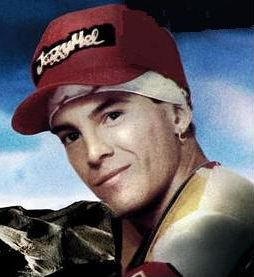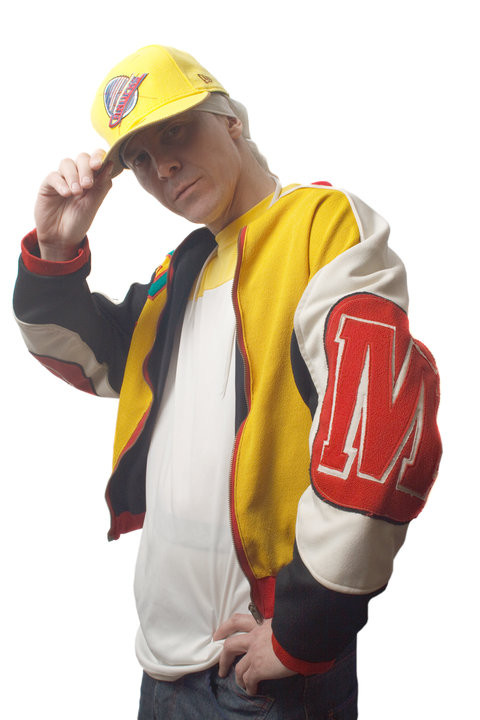Jazzy Mel
Настоящее имя: Jazzy Mel
Об исполнителе:
Jazzy Mel Mario Antonio Pietruszka Chamorro, better known by his stage name Jazzy Mel, a rapper, singer and songwriter from Uruguay. Born in Toledo, Montevideo, May 28, 1966. Passed the final year of the '70s when he first heard "Rappers Delight", a song that would change his life. He started rapping the theme of Sugarhill Gang to hang out and taste. Four years later would settle permanently with his family in Buenos Aires. In 1984 with the movies "Breakin '" and "Beat Street" (emblematic films of the movement), the Break Dance came to Buenos Aires and became fashionable (further supported by "The Club of Michael Jackson and Friends" with Domingo Di Nubila). For others it was a fad, but for Mario and a few pioneers was the means by which they discovered hip-hop. These pioneers, who are now called "Old School" at first gathered to dance downtown, the Garden Gallery in Chicago and the Obelisk. Then began to frequent various records and became the district of Morón in its regular stop. It was at that time was renamed Mario Rock Jazzy Mel, who along with Frost (Sindicato Argentino del Hip Hop) and Mike Dee (Bola 8) were the first local rapers to compose letters in Castilian These early rappers improvised in the Sarmiento Line trains Besides those already named, were DJ Hollywood, Derek, Caro, Spider, DJ Buda, Wizard, Pingüino, Psicosis and many more. Years passed and when the '80s were coming to an end Rock Jazzy Mel tried to become the first Argentine to edit rap, but was unsuccessful. MC Ninja became their DJ. Jazzy Mel, the pioneer It was in Brazil where he began his recording career in the late eighties, rapping in English and under the name of Jezzy Mel Rock. It was edited by TNT Records, a label of San Pablo. There he would edit two discs becoming one of the pioneers of the genre in South America. Guillermo Vilas was the first to spread their music in the country through its "Knock Out" which aired in 1990 by Channel 7, a television version of the cycle bearing the same name was broadcast on the radio Z95. The program was produced by the label Radio Knock Out (later called Rave On) by Bernardo Bergeret, who after listening to a rap on the special Z95 decided he was invited attention. Even the Jazzy Mel debut album in the country was in the compilation "Radio Knock Out" with the theme "Get into a trance / Olé Olé" and under the pseudonym MC Rapper. Its producers merged the rap and house to get him into the clubs and took care of covers or subjects taking the base of others (like "Fue amor" that used the tune of "Found Love"). These producers were brothers Guerrieri, Tuti Gianakis and DJ Deró, who had emerged from the Z95 by Bernardo Bergeret (creator of Viuda e Hijas de Roque Enroll), and with him were responsible for producing Machito Ponce, Seducidas y Abandonadas, Twiggy, The Sacados , Bravo and Cae. Without doubt 1991 was the year of the rap in Argentina. In addition to the international releases into the country, Jazzy Mel released the record that bears his name shortly after the maxi “¿Qué pasa?”. His themes, dance, beat the record, radio and TV, highlighting “Olé Olé”, “¿Qué Pasa?”, “Afrolatino” and especially "Fue Amor." By then he had joined as dancers Veronica and Caro, whom he knew from the time of the Old School, and that boy had come second in a competition break in "The Club Michael Jackson and Friends" With the success Jazzy Mel was a regular at the television. After passing by "KO" was part of the music program "Top Ten" which aired on Channel 9 on Sunday morning. This cycle was produced by Abraxas and the majority of drivers working in the radio Z95, including Marcelo Figueras who sang in "Fue Amor". In the very successful was the ability to travel to Europe, he tried his luck in France, went to Italy and returned with a new production, "Jazzy Mel Remixes Europeos, Just say yeah!", Mixed in a Belgian study. In its heyday it sold 150 000 copies, according Bergeret, and attracted over 5000 people per show at concerts at the Opera Theatre. Before his second tour of the old continent, let Jazzy recorded what would become his second job with completely new material: "Tócala de nuevo, Sam".
Альтернативные названия:
Вариации названий:
Mr Jazz
Mario Antonio Pietruszka Chamorro
Jazzy Mel
Singles & EPs Vinyl 1991 Mexico
12", 33 ⅓ RPM, Single

